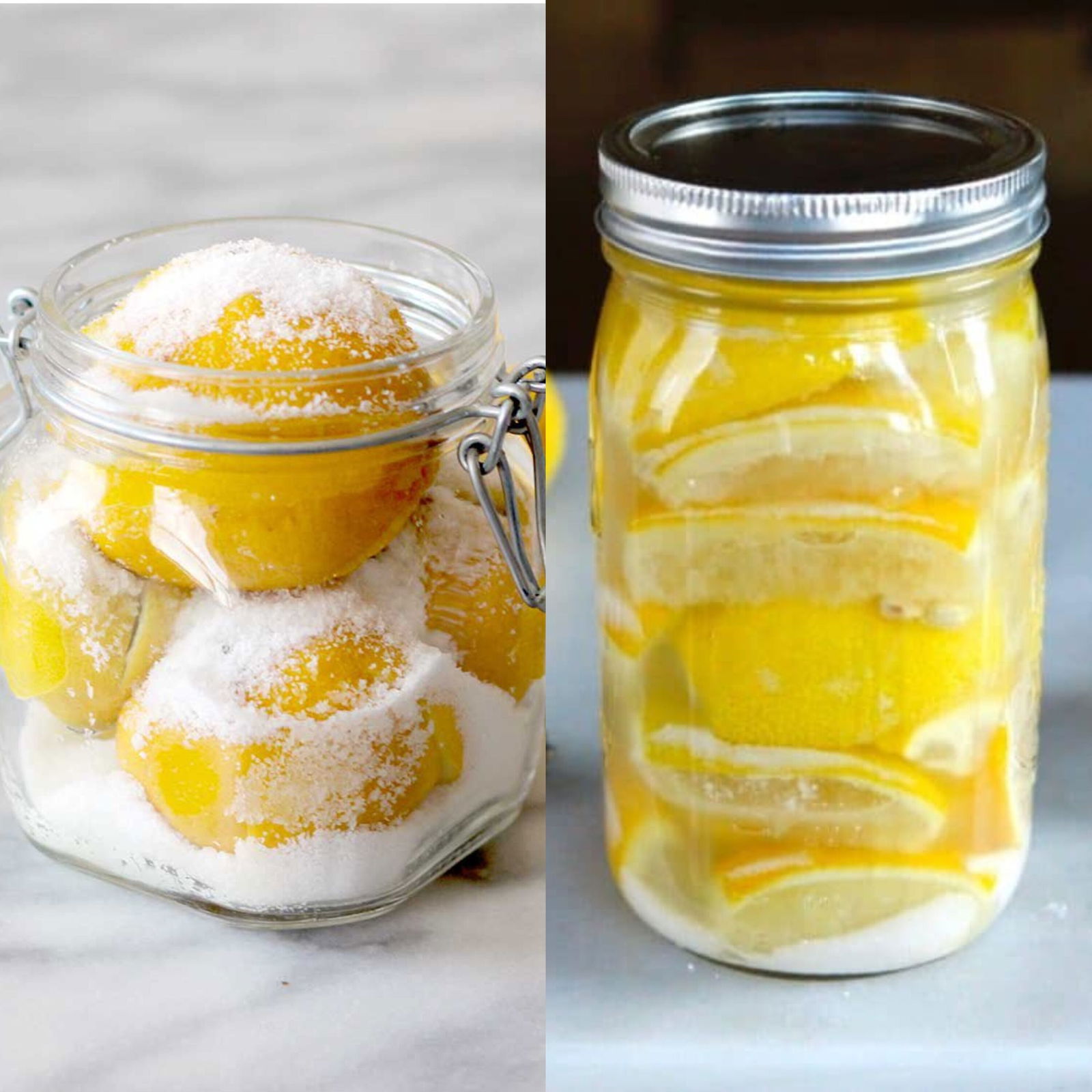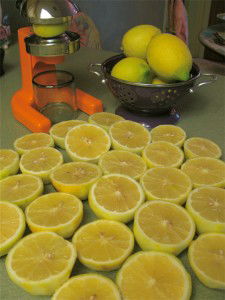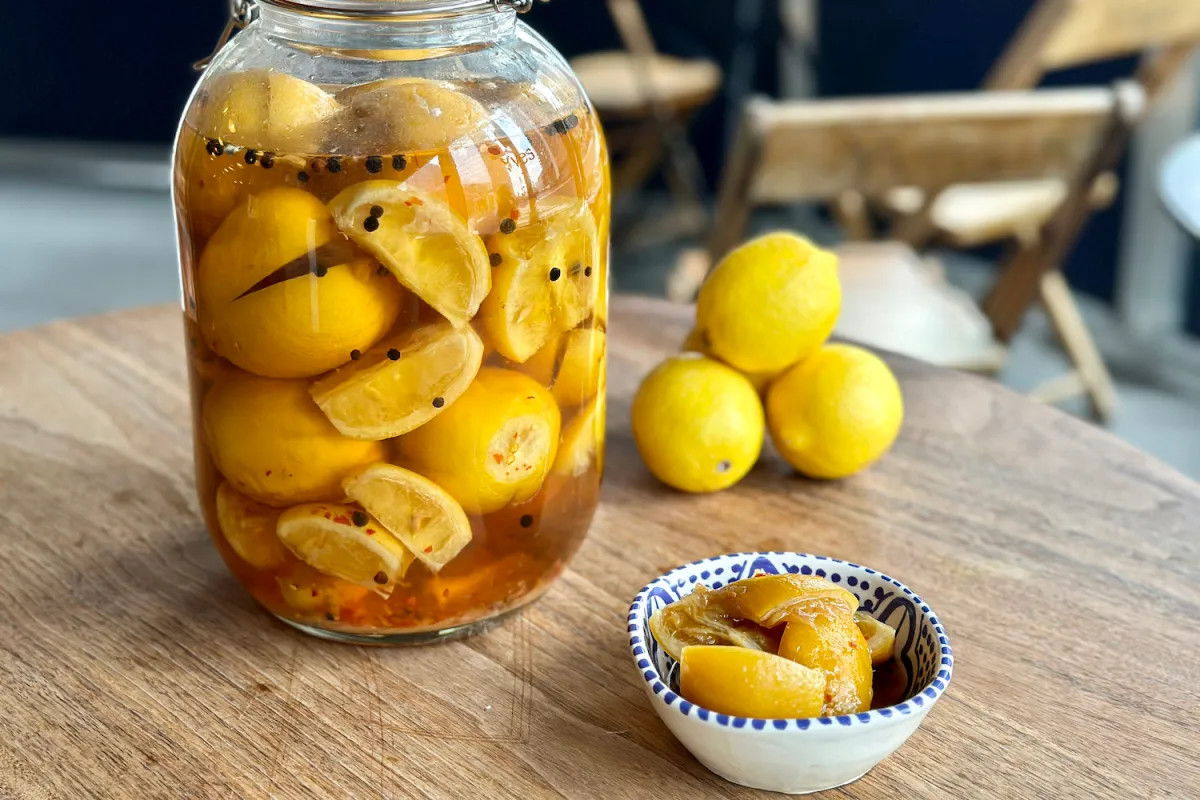
As we grow older, our understanding of the small pleasures in life intensifies, and we take delight in maintaining the tastes of each season. If you’ve ever had an excess of lemons and pondered ways to store them for an extended duration while avoiding the potential issues of mold or dehydration, you’re in for an enjoyable solution.
In this article, tailored for the 50+ generation, we’ll explore a simple and friendly pickling method that will help you savor the zest and tanginess of lemons for months to come.
Understanding the Lemon Dilemma

Preserving lemons poses a challenge, particularly when faced with an excess of these vibrant citrus fruits. The refrigerator may not serve as the optimal solution, given that its cold temperature can lead to the dehydration and loss of zest in lemons. Furthermore, mold is a prevalent concern with lemons, influenced by both climatic conditions and the handling of the fruits during transportation. Lemons with compromised skin, in particular, are at heightened risk of mold development.
The acidic nature of lemons makes them more susceptible to fungus spores, as mold tends to thrive in acidic environments. However, it’s important to note that mold on lemons is not toxic or harmful to touch or smell. Despite this, nobody wants to see their lovely lemons succumb to the unwanted effects of mold.
Preserving Lemons through Pickling
To prolong the lifespan of your lemons and maintain their crisp, tangy essence, contemplate using a straightforward pickling approach. This timeless method is facilitated by the unique preservative qualities of salt, a culinary companion that has stood the test of generations.
Here’s how you can pickle lemons with ease:

Slice the Lemons:
Begin by cutting your lemons into slices of your desired thickness. You can choose to leave the peel on or remove it, depending on your preference.
Create the Pickling Brine:
In a suitable container, combine water and salt to create a pickling brine. The salt acts as a natural preservative, preventing the growth of harmful microorganisms.
Place the Lemon Slices:
Submerge the lemon slices into the container with the prepared brine. Ensure the slices are fully covered by the liquid.
Seal and Shake:
Seal the container tightly and give it a good shake. This ensures the even distribution of the brine and salt, promoting preservation.
Storage:
Store the container in a cool, dark place for several months. The pickling process will work its magic, keeping your lemon slices fresh and full of flavor.
Enjoying Your Pickled Lemons

The appeal of pickled lemons lies in their adaptability. They can be employed to infuse a burst of zesty taste into various dishes. Whether incorporated into a revitalizing salad, a savory stew, or a tangy marinade, pickled lemons have the potential to enhance your culinary creations to unprecedented levels.
In addition to their flavor-enhancing properties, pickled lemons also offer potential health benefits. The fermentation process can increase the availability of certain nutrients and probiotics, promoting a healthy gut microbiome.
Conclusion
As we navigate the joys of life beyond 50, we find pleasure in the small yet meaningful moments. The act of preserving lemons through pickling is not only a practical solution but also a delightful culinary tradition. It allows us to capture the essence of lemons and extend their vibrant flavor throughout the year.
Therefore, when faced with an excess of lemons, consider adopting this pickling technique. Allow the enchantment of salt to safeguard the zest and tanginess of these citrus marvels, guaranteeing the prolonged enjoyment of their vibrant flavors. It’s a straightforward yet remarkably gratifying approach to relish the essence of the seasons and enrich your culinary endeavors.




















